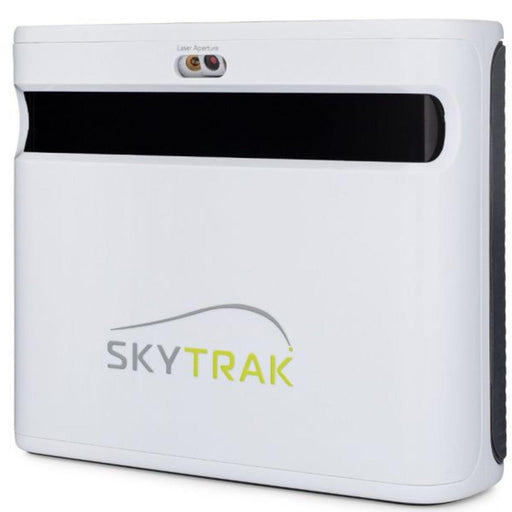
Essential Tips for Building Your Simulator Business
As the popularity of golf simulators continues to soar, entrepreneurs are seizing the opportunity to capitalize on this growing market by launching their own simulator businesses. Whether you're planning to open a dedicated simulator facility, integrate simulators into an existing golf center, or offer mobile simulator services, building a successful business requires careful planning, strategic execution, and a dedication to delivering exceptional experiences for your customers. In this article, we'll share valuable tips to help you navigate the journey of building and growing your simulator business.
1. Define Your Niche and Target Audience:
Before diving into the business, take the time to define your niche and identify your target audience. Are you catering to serious golfers looking for advanced training and performance analysis, casual players seeking entertainment and socializing opportunities, or corporate clients hosting events and team-building activities? Understanding your target market will inform your business strategy, marketing efforts, and service offerings.
2. Choose the Right Location:
Location is key when it comes to launching a successful simulator business. Consider factors such as foot traffic, accessibility, parking availability, and proximity to complementary businesses like golf courses, sports facilities, or entertainment venues. Whether you opt for a standalone facility, a storefront in a busy shopping district, or a mobile setup that can travel to various locations, choose a location that aligns with your target market and business objectives.
3. Invest in Quality Equipment and Technology:
The success of your simulator business hinges on the quality and performance of your equipment and technology. Invest in top-notch simulators, launch monitors, projection systems, screens, and software that deliver realistic gameplay, accurate shot data, and immersive experiences for your customers. Choose reputable brands known for reliability, customer support, and ongoing updates to stay ahead of the competition and provide the best possible service to your clients.
4. Create a Memorable Customer Experience:
In a competitive market, delivering exceptional customer experiences is paramount to building a loyal customer base and generating repeat business. Focus on creating a welcoming and inviting atmosphere in your facility, with comfortable seating areas, well-designed simulator bays, and attentive staff who are knowledgeable about the equipment and passionate about the game of golf. Offer value-added services such as coaching, club fitting, club repair, and personalized game analysis to enhance the overall customer experience.
5. Develop Effective Marketing and Promotion Strategies:
To attract customers and drive awareness of your simulator business, develop a comprehensive marketing and promotion strategy tailored to your target audience. Utilize a mix of online and offline channels, including social media marketing, search engine optimization (SEO), email marketing, local advertising, partnerships with golf clubs and organizations, and participation in golf-related events and tournaments. Offer promotions, discounts, and special events to incentivize trial and repeat business and encourage word-of-mouth referrals from satisfied customers.
6. Prioritize Customer Engagement and Feedback:
Actively engage with your customers to gather feedback, address concerns, and continually improve your offerings. Encourage customers to provide reviews and testimonials, and monitor online review platforms and social media channels to respond promptly to feedback – both positive and negative. Implement customer loyalty programs, rewards incentives, and referral bonuses to foster long-term relationships and encourage customer advocacy for your brand.
Driving Success:
In conclusion, building a successful simulator business requires careful planning, strategic decision-making, and a relentless focus on delivering exceptional experiences for your customers. By defining your niche, choosing the right location, investing in quality equipment, creating memorable customer experiences, developing effective marketing strategies, and prioritizing customer engagement and feedback, you'll be well-positioned to drive success and establish your simulator business as a leader in the industry. So, roll up your sleeves, tee up your ambition, and get ready to drive your simulator business to new heights of success.

Have Questions About Golf Simulators?
Our expert team is here to help you find the perfect golf simulator for your needs.
Featured products
-
SkyTrak+
Original price $2,995.00 - Original price $3,145.00Original price$2,995.00 - $3,145.00$2,995.00 - $3,145.00Current price $2,995.00Introducing the SkyTrak+ Launch Monitor: Unmatched Accuracy and Advanced Features Experience a new level of precision and innovation with the SkyTr...
View full details -
ProTee Majestic Simulator Package
Original price $9,618.00 - Original price $13,848.00Original price$9,618.00 - $13,848.00$9,618.00 - $13,848.00Current price $9,618.00ProTee Majestic Golf Simulator Package: Elevate Your Indoor Golf Experience Transform your home or business into a golfer’s dream with the ProTee M...
View full details -
Eagle Golf Mat
Original price $370.00 - Original price $1,130.00Original price $370.00$370.00$370.00 - $1,130.00Current price $370.00Introducing the Eagle Golf Mat: The Ultimate Golf Experience Are you passionate about golf and demand nothing but the very best in your practice eq...
View full details -
Retractable HomeCourse® Golf ProScreen 180
Original price $2,299.00Original price $2,299.00 - Original price $2,299.00Original price $2,299.00Current price $1,999.00$1,999.00 - $1,999.00Current price $1,999.00HomeCourse® Golf ProScreen 180 HomeCourse® Golf ProScreen 180 is a retractable golf screen and enclosure. HomeCourse® Golf ProScreen 180's ballisti...
View full details -
The Augusta V2 4'x12' 2 Cups
Original price $399.00Original price $399.00 - Original price $399.00Original price $399.00Current price $329.00$329.00 - $329.00Current price $329.00The Augusta is one of Big Moss’ traditional models. It offers unmatched versatility for teaching and year round practice. Make a long-term investme...
View full details





